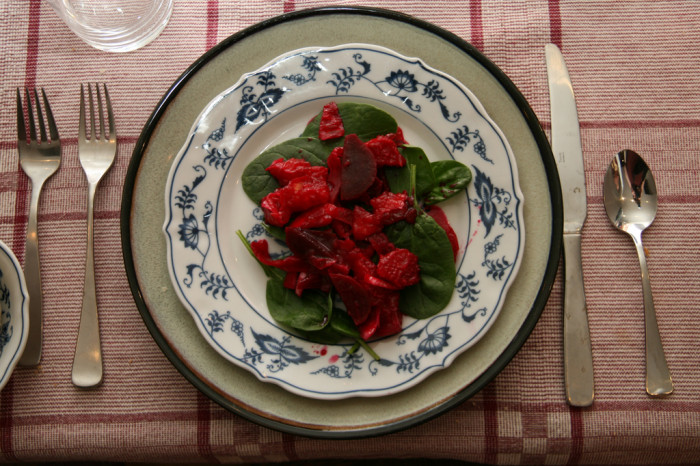
Healthy eating isn’t an act of denial or self-deprivation, but simply acting within your habit of positive living.
The most commonly asked questions I get when people find out that I follow a plant-based whole foods or vegan diet are of course, “ Where do you get your protein?” and “Oh, I could never do that, isn’t it really hard and restrictive?” or, my by far personal favorite: “ There is just no way I could afford all that special vegan food – it would be way to expensive for me!” Okay, the last one isn’t technically a question, but it is certainly an issue for most.
The question that stands out for me isn’t the protein or the expense: those really are excuses, antiquated ideas and two objections that are easily solved by a trip to the grocery store or a few simple Google searches. Plant-based diets are less expensive than their carnivorous counterparts, and I have yet to encounter any “special vegan food.” Vegans can eat everything that everyone else should be eating; and while it is true that most processed foods don’t pass vegan muster, no one should be eating those foods regardless of what diet they choose to follow. Every single food you eat has protein – plants alone can provide 10-20% of your protein needs. What I find the most interesting and discouraging is the concept of a healthy diet being thought of as hard, restrictive, and a daily practice in sacrifice. Does this make me a health martyr?
Whether you choose a plant based whole foods or vegan diet, the Paleo animal protein and fat based diet, or even the SAD (Standard American Diet) using the 4 food groups and the food pyramid, the key is that it is quite simply a choice.
As a natural food coach and an endurance athlete, I struggle with this concept of cheat day and the 80/20 rule, which requires that I eat well 80% of the time, while during the remaining 20% of time I eat as to cancel my own efforts. There is no logic in this line of thinking. How is it possible to purposely set yourself up for failure and then have that lead to permanent positive change? From a healthful eating perspective some days are always going to be better than others, but to actually set forth a plan to sabotage yourself 20% of the time seems counterproductive at best and a recipe for disaster at worst.
We continually search for answers to the seemingly endless question of “Can I eat this?” “Is this allowed?” The answer is actually quite simple. We can all actually eat anything we want. When we start off with the underlying emotion of self-deprivation, we are creating an atmosphere of denial that will ultimately not lead to making positive change.
Choice can be a frightening word. It imbues a subtle undertone of the possibility of making a bad choice or culpability; and personal responsibility when it comes to our diets is not a popular theme. The choice to eat spinach takes the equal effort as the choice to eat bacon. The perception that somehow it is harder to choose a vegetable over meat is pervasive in our society. Our talk shows, news stories, magazine covers and headlines reinforce the message that being healthy should be and is hard work, a daily grind of denial partaken by the fringe element, radicals, and outcasts. These recurrent messages compel us to embrace that next unpronounceable super food, follow the latest get thin quick Atkins/South Beach/Paleo eat like a caveman mania. But ultimately, if we take ownership of our choices there is no science or hype behind being healthy.
Will power is an interesting concept. We apply it to eating quite readily but seemingly not to other aspects of our lives. We rarely will say “I had the will power today to pick my children up from school.” or “I had the will power to get up this morning when my alarm went off and go to work.” Picking up our children, going to work, these things are not negotiable, they just are what we do. So why not apply the same logic and reason to leading a healthy lifestyle? When your alarm goes off 45 minutes earlier because you are going to get in a morning run, embrace that in the same way you would if it wasn’t an option – it was like attending that early morning meeting or catching an early flight. Do this long enough and that early morning run becomes routine.
I recently went for a day long trail run with a group of friends. After an amazing day in the mountains, we went out for dinner. The group ordered a massive plate of nachos with added spicy beef, complete with sour cream and oozing with cheese. I ordered the beet salad. My friend asked me how it was that I could stop myself from eating the nachos and just have salad. I said, “Simple. I look at those nachos and they aren’t food. They look like food, they smell like food – but I know that there isn’t any food value in it, so in the same way I wouldn’t eat the table cloth or my napkin, cause they aren’t food, I would not eat the nachos.”
By empowering yourself to make a choice on how you eat, on what you eat and on what you choose to not eat – you are setting the bar for success. Not because you denied yourself and had an iron will, but because you made quiet simple healthy choices.
Also see: 4 Simple Steps to Lasting Lifestyle Changes
Simple Recipes: Fridge Drawer Indian Curry
____
Photo: Tim Sackton via Flickr




